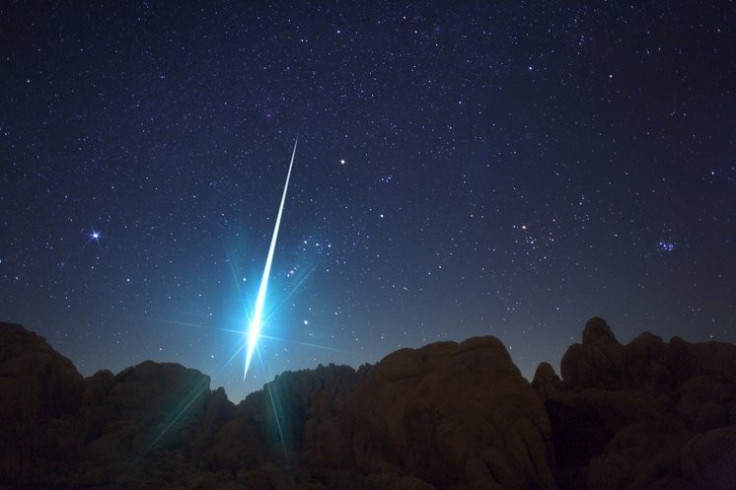Leonid Meteor Shower 2014: Where to Watch Shooting Stars in the UK and US

The night sky is to be lit up by a display of shooting stars over the next two days, as the Leonid meteor shower makes its annual appearance.
The Leonids will peak overnight between 17 and 18 November, in one of the last meteor showers of the year.
According to Nasa's Jet Propulsion Laboratory, skywatchers can expect to see up to 15 meteors an hour, which will be travelling at a speed of 44 miles (71km) per second. This is a modest shower, compared to the Orionid meteor shower in October.
Astronomers recommend finding a dark, quiet spot to catch a glimpse of the meteors. Since the moon will be a waning crescent, the sky should be dark enough for a good show.
For those unable to see the show, the Slooh Community Observatory will host a live online streaming of the event, which can be seen here.
The shooting stars from the Leonid meteor shower appear to come from the constellation Leo, which lies between Cancer to the west and Virgo to the east. The meteors will climb into view in the northern hemisphere after midnight.
Associated with the comet Tempel-Tuttle, the Leonid meteor shower takes place when the Earth passes through the debris field left behind by the comet.
When our planet's upper atmosphere comes into contact with the fast-moving debris, they burn and create spectacular light shows.
Where can you see the Leonids in the United States?
The meteor shower is forecast to peak on Monday afternoon on 17 November in the US eastern time zone, so viewers are advised to look to the skies between midnight and dawn on Monday and Tuesday.
The Leonids have historically been a very prolific shower, with over 1,000 meteors per hour in 1833 – one of the most stunning events to date. This year's show will be less spectacular, with astronomers saying the next big Leonid meteor shower will be in 2034, according to Scientific American.
"We're predicting 10 to 15 meteors per hour," Dr Bill Cooke of the Meteoroid Environmental Office at Nasa's Marshall Space Flight Center, told Space.com. "For best viewing, wait until after midnight on 18 November, with the peak of the shower occurring just before sunrise."
According to Accuweather.com, much of the US will get a good view of the shower. However, those in the northeast and northwest of the States will have a slightly obscured view, due to the weather.
From southern Idaho to Texas, into the Southern Plains and the southeast will be the best viewing conditions, with clear skies.
The West Coast will have moderate viewing conditions due to some cloud cover. Much of the East Coast, Great Lakes and Florida will have a poor view, due to overcast or cloudy weather.

Where can you watch the shower in the UK?
For the best change of spotting a shooting star, viewers should head away from city lights and find a dark area free of light pollution. It is important to dress warmly and lie on your back, as the shower can be seen with the naked eye.
London: The WaterWorks Nature Reserve in northeast London near Clapton and Leyton Midland Road stations.
Birmingham: Warley Woods, accessible from the city centre, located west from the centre of Birmingham, off the A456 Hagley Road.
Manchester: Heaton Park, the largest park in Greater Manchester, has its own astronomy club and is accessible by bus or tram from the city centre.
Newcastle: Northumberland National Park is the largest Dark Sky Park in Europe.
Edinburgh: The Royal Observatory Edinburgh in the Hermitage of Braid or Blackford Hill Local Nature Reserve.
Glasgow: The Mugdock Country Park is located partly in East Dunbartonshire and partly in Stirling, and is one of Scotland's most popular tourist attractions.
Belfast: Oxford Island National Nature Reserve hosted the Northern Ireland showcase event for the BBC Stargazing Live in 2012 and 2013.
Cardiff: Brecon Beacons is an hour drive away from the city. In February 2013, the BBC reported that the Brecon Beacons Dark Sky Reserve was the fifth destination in the world to be granted special protection as an international dark sky reserve.
© Copyright IBTimes 2025. All rights reserved.






















